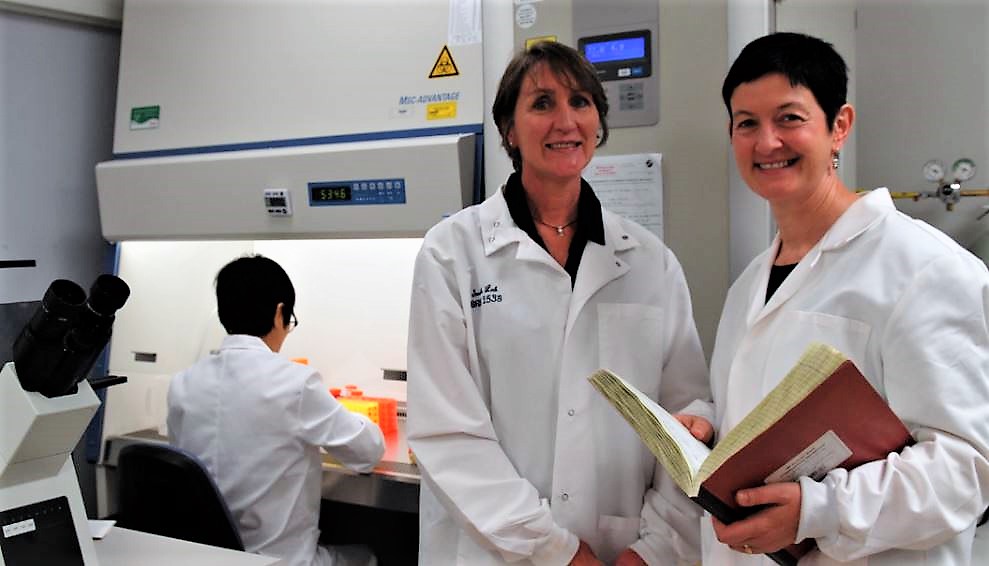
The first insights into dengue virus damage to the eye start the work needed to combat one of the important side effects in the infectious disease’s spread across the world.
Flinders researchers have led first-in-field research to discover how dengue virus causes retinal disease that can threaten the vision of people who catch dengue.
An estimated 390 million cases of dengue are reported a year, with no approved drug treatment or vaccine. Department of Health data for 2016 indicate the number of dengue virus infections in Australia is at a 20-year high, with some of the mosquito-borne disease contracted overseas.
Retinopathy – disease involving the retina – is the most serious eye problem for people who are infected with dengue virus.
Flinders virologist Associate Professor Jillian Carr, and Flinders ophthalmologist and Superstar of STEM Professor Justine Smith have joined forces to lead this new research, with help from colleagues based at the Singapore National Eye Centre. Professor Smith is already well known for her ground-breaking research on ebola virus eye disease.
Their teams’ results, just published in Mediators of Inflammation, are the first time a laboratory has studied mechanisms of dengue virus infection of human retinal cells.
“We saw important differences in the way dengue virus infected different retinal cells and how those cells responded to the infection,” says Associate Professor Carr.
“Watching infection of human retinal cells in the lab is showing us how the virus causes some very characteristic lesions in the eye of a patient with dengue, including retinal swelling and inflammation,” says Professor Smith.
Professor Smith, who also is a consultant ophthalmologist at the Flinders Medical Centre, was recipient of the Award for Excellence in Research at the 2017 Southern Adelaide Local Health Network (SALHN) Excellence Awards on Friday 8 September.

